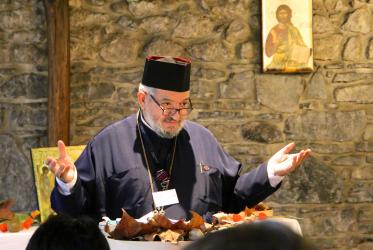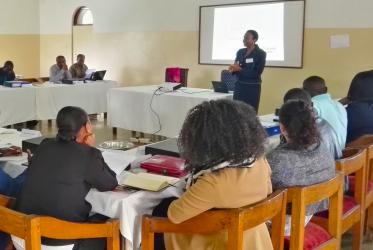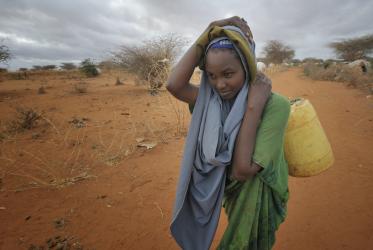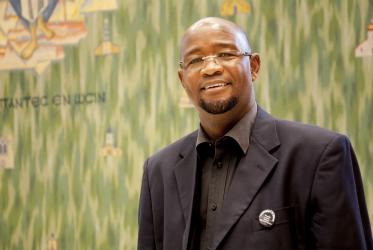Displaying 1 - 20 of 23
27 October 2021
Doing his best without being the best
07 September 2018
In Zambia, foreign investors complicate “economy of life”
06 September 2017
African youth takes stand at first ever WCC Eco-School
03 August 2017
Seven weeks of Lent highlight water crisis in Africa
01 March 2017
Water justice focus of consultation in Nigeria
29 November 2016
Faith communities explore concrete climate action at COP22
10 November 2016
Land rights focus of panel discussion
17 November 2015
Churches need to do more to tackle HIV and AIDS
23 June 2015
Churches and agencies formulate responses to Ebola outbreak
01 October 2014













